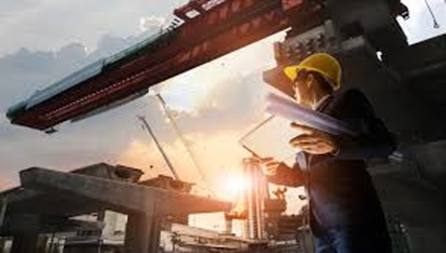CONSTRUCTION MANAGEMENT

CONSTRUCTION MANAGEMENT
Streamline Your Construction Projects And Optimize Your Resources With Our Comprehensive Construction Management Services. Our Experienced Team Offers End-To-End Solutions, From Planning And Scheduling To Budgeting And Quality Control, Ensuring Timely And Cost-Effective Project Delivery.
Habitant metus lobortis quam pharetra maximus tellus parturient fringilla taciti. Quisque pulvinar facilisi tempor condimentum sit dui pharetra ad fringilla cursus. Consectetur nisl lacus felis proin inceptos vestibu lum mi fermentum cubilia. Augue praesent vel ridiculus blandit dapibus vehicula. Dignissim tortor ultricies iaculis penatibus hendrerit scelerisque elit fames donec.
The following are part of OUR CONSTRUCTION MANAGEMENT SERVICES
- Monitoring of contractor
- Monitoring of project progress
- Monitoring of time and cost
- Management of contracts
- Monitoring & tracking of the procurement process
- Monitoring of submittals
- Management of documents
- Conduct project progress meetings
- Safety assurance
- Quality assurance
- Management of testing and commissioning
- Management of project handover and closeout
- Management of claims
Frequently Asked Question
Construction Management Services involve planning, coordinating, and overseeing the construction phase of industrial plant projects. This includes managing the construction site, ensuring safety, controlling quality, and ensuring the project is completed on time and within budget.
Construction Management Services are crucial for ensuring that the construction process is efficient, safe, and compliant with all relevant regulations. They help in managing resources, mitigating risks, and delivering a project that meets the specified requirements and standards.
Roles and Responsibilities
Responsibilities include project planning and scheduling, managing subcontractors, ensuring compliance with safety and quality standards, monitoring progress, controlling costs, resolving issues, and maintaining communication with stakeholders.
Construction Management Services involve overseeing the entire construction process, often acting as the owner's representative, whereas a general contractor is typically responsible for the day-to-day construction activities and may self-perform much of the work.
Processes and Procedures
Typical steps include pre-construction planning, site preparation, scheduling and resource allocation, procurement of materials, construction supervision, quality control, safety management, progress monitoring, and project close-out.
Safety is managed through the implementation of safety plans, conducting regular safety training and meetings, performing safety audits and inspections, ensuring compliance with safety regulations, and promoting a culture of safety on the construction site.
Quality management ensures that construction meets the specified standards and requirements. This involves implementing quality assurance (QA) and quality control (QC) processes, conducting inspections, and ensuring that materials and workmanship meet quality specifications.
Tools and Techniques
Common tools include project management software like Primavera P6 and Microsoft Project, construction management platforms like Procore and Autodesk BIM 360, scheduling tools, and safety management software.
Construction Managers ensure projects stay on schedule and within budget by meticulous planning, continuous monitoring, effective resource management, timely procurement, proactive problem-solving, and regular progress reviews.
Best Practices
Best practices include thorough planning, effective communication, strong safety and quality control measures, regular progress monitoring, efficient resource management, proactive risk management, and fostering collaboration among all project stakeholders.
Construction Management Services contribute to risk management by identifying potential risks early, developing mitigation strategies, continuously monitoring for new risks, and adjusting plans as necessary to address and manage risks effectively.
Industry-Specific Questions
Changes and variations are managed through a change control process, which includes evaluating the impact of changes, obtaining necessary approvals, updating schedules and budgets, and communicating changes to all relevant stakeholders.
Sustainability in construction management involves using eco-friendly materials, minimizing waste, optimizing energy use, ensuring compliance with environmental regulations, and implementing sustainable construction practices to reduce the environmental impact of the project.
Compliance is ensured by staying informed about relevant regulations, implementing compliance checklists, conducting regular audits and inspections, training staff on regulatory requirements, and working closely with legal and regulatory experts.
Subcontractors are managed by clearly defining their scope of work, setting performance expectations, monitoring their work quality and progress, ensuring compliance with safety standards, and maintaining regular communication to address any issues promptly.
Project close-out involves completing all construction activities, conducting final inspections, ensuring all punch list items are addressed, compiling project documentation, obtaining necessary certifications, and formally handing over the project to the owner.
Technology plays a significant role by enabling efficient project planning and scheduling, enhancing communication and collaboration, improving safety management, providing real-time progress tracking, and facilitating quality control through digital tools and platforms.
What We Provide
Have Additional Questions? Contact Us!
Phone Number
+966 56 391 3902
Mail Address
info@reliabletech.sa
